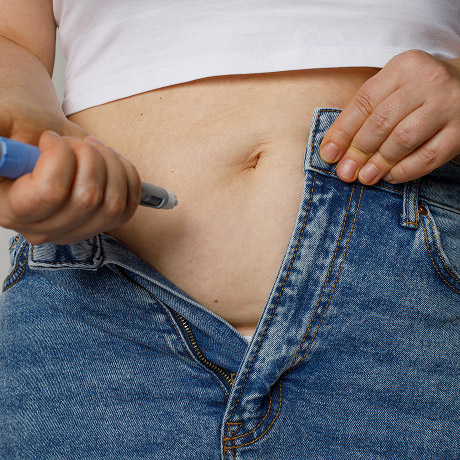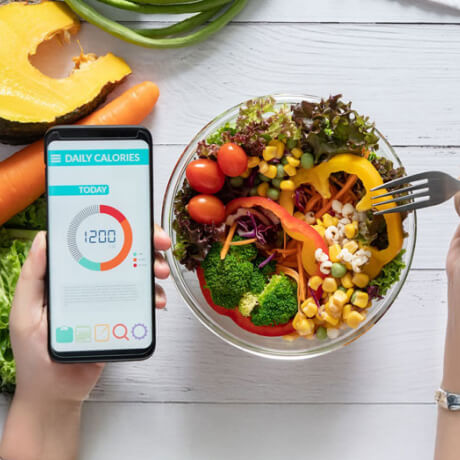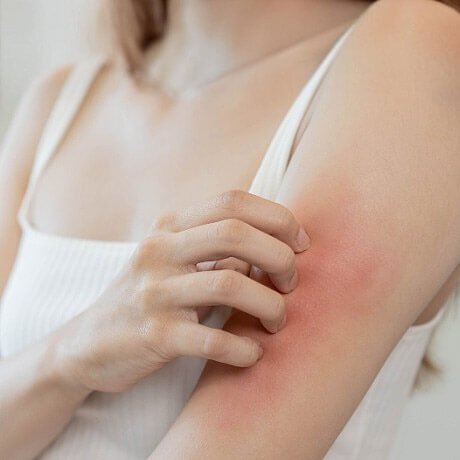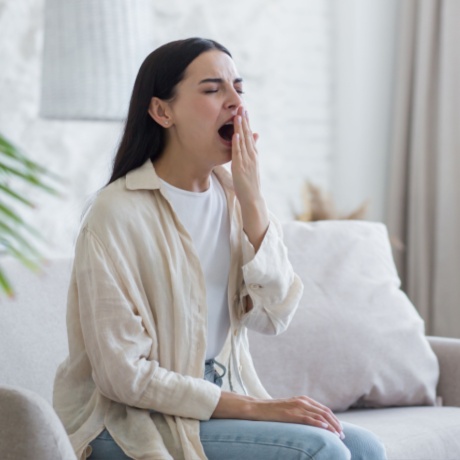
Login to your account
- Prescription included
- Genuine medication
- All-inclusive service - No hidden fees
- Free next-day delivery
Foods to avoid during weight loss treatment: a practical guide
Find out what foods can impact your weight loss journey
Weight loss treatments are revolutionary and clinically-proven solutions for weight loss support.
There are now a variety of treatments available for weight loss, from tablets to jabs, which makes them a favourable option for many. They are an extremely popular option, with the weight loss medicine market projected to reach $150 billion by 2035.
While they are designed to help you lose weight, they are not a magic cure-all treatment. They require significant lifestyle changes to see the best results.
One of the main changes you have to make is to your diet. Poor eating habits are the leading cause of obesity. So, if you do not change your diet to fit your weight loss treatment, you may not see the best results for your efforts.
Keep reading to learn why your diet impacts weight loss treatment, what foods to avoid and how to change your diet.

Key takeaways
- Diet is an important part of weight loss treatment because bad eating habits can impact your weight loss efforts.
- Avoid eating too many high-fat, high-sugar and ultra-processed foods and beverages.
- Prioritising nutritious foods, making healthy swaps and staying hydrated are the best ways to get the most out of your weight loss treatment.
Why certain foods can disrupt weight loss treatment
There are several ways that the food you eat can impact your weight loss treatment.
- Consuming too many calories: Weight loss medicines are designed to help you consume fewer calories, but if you exceed your calorie limit, it could affect your progress.
- Impact on metabolism: A diet high in sugary and fatty foods can affect your metabolism, making it easier for your body to store fat.
- Increased cravings: Giving in too frequently to cravings could lead you to consume more calories, which could reduce your weight loss efforts.
Some weight loss medicines have specific foods and drinks you should avoid. This is because they can cause side effects.
Two weight loss medicines that have specific interactions are Mysimba and Orlistat.
Specific weight loss medicines interactions
Mysimba & alcohol
- Drinking too much alcohol whilst taking Mysimba can increase the risk of seizures (fits), mental health episodes or reduced alcohol tolerance.
- You should not drink too much alcohol or avoid drinking it altogether.
Orlistat & fatty foods
- Orlistat works by reducing the amount of fat that is absorbed from your diet by your small intestine.
- Undigested fat is released through your stools, which can make them fatty or oily.
- So, eating excessive amounts of fat can make this effect worse.
Top foods to avoid while trying to lose weight
To get the most out of your weight loss treatment, here are 5 foods to avoid eating too much of.

Caution
Always ask your doctor before making big changes to your diet, as they may need to monitor you.
1. High-fat foods
Foods that are high in fat can impact your weight loss. High-fat foods tend to be higher in calories, so eating too many can mean you go over your daily calorie allowance.
These foods also tend not to be very nutritious. They don’t include many of the beneficial nutrients that help you feel full and be healthy.

Foods high in fat include:
- fried foods like fried chicken, fish or chips
- fatty cuts of meat like pork belly, beef ribeye or chicken thighs
- meat products like sausages or pies
- butter, ghee or lard
- hard cheeses like cheddar
- cream products like sour cream or ice cream
- savoury snacks like popcorn, crackers or crisps
- chocolate, biscuits, cakes or pastries
- products containing palm oil
- coconut oil or coconut cream
These foods are also high in saturated fats. Consuming too many of these foods can put you at a higher risk of high cholesterol, which can lead to serious heart conditions in the long term.
2. Refined carbohydrates
Carbohydrates are an essential nutrient and the main source of energy. However, some carbohydrates are refined and processed in a way that removes the beneficial nutrients like fibre. These are known as simple carbs or refined carbs.
They provide little nutritional value and are higher in calories, so they can cause weight gain if you eat too many.

Refined carbohydrates include:
- white bread
- pasta
- white rice
- white flour
- pastries or cakes
- packaged breakfast cereals
- carbonated or sweetened drinks like fruit juice
As well as causing weight gain, too many refined carbs can cause high blood sugar levels.
Eating too many refined carbs can cause your blood sugar to spike. If your blood sugar spikes too often, your body starts producing too much insulin.
Over time, this can cause your cells to stop responding to insulin, which can lead to insulin resistance. This is a risk factor for type 2 diabetes and further weight gain.
3. Sugary beverages and alcohol
Many people forget that what they drink also affects their diet. Sweet beverages and alcoholic drinks are often high in sugar and calories, even though they don’t feel like it. So, drinking too much can subtly damage your weight loss efforts.

Some drinks you should consume in moderation include:
- alcoholic drinks like wine, beer, cider or cocktails
- fizzy drinks, including “diet” drinks
- fruit juice
- sweetened coffee drinks
- energy drinks

Important:
The effects of alcohol can also make the side effects of any weight loss treatment worse, especially if you are on Mysimba.
4. Ultra-processed foods
Ultra-processed foods, or UPFs, are food products that have been industrially manufactured. This means they go through many processing steps and contain ingredients that aren’t common in home cooking (e.g. preservatives or artificial sweeteners).
These foods tend to be high in calories but contain very little nutritional value. So, they are big causes of weight gain.

Common ultra-processed foods include:
- processed meats like ham & sausages
- mass-produced bread
- breakfast cereals
- instant soups
- crisps
- biscuits
- ice cream
- fruit-flavoured yoghurt
- fizzy drinks
- alcoholic drinks
More than half of the calories an average person in the UK eats and drinks come from processed foods, according to research. They are usually quick, convenient and tastier options than cooking.
But these foods should be eaten in moderation and swapped for minimally processed or unprocessed foods where possible. Too many UPFs could lead to more weight gain and affect your weight loss efforts.
5. ‘Low-fat’ products
You may see the label ‘low-fat’ and assume it’s the healthier option. However, a lot of times, they are not as healthy as they seem.
Products that are marketed as ‘low-fat’ mean they contain 3 g of fat or less per 100 g. However, these products often contain other ingredients to make them taste nice, such as added sugar or artificial sweeteners.

Products that often have low-fat alternatives include:
- yoghurts
- cream
- cheese or cream cheese
- desserts
- premade sauces
You should always check food labels to see what they contain. Foods that are high in calories or contain too much sugar may harm your weight loss efforts.
Smart swaps and better food choices
This may seem like an overwhelming list of foods to consider. But a few mindful food swaps will help you get the most out of your weight loss treatment.
Nutritious foods
The best foods while on weight loss treatment are nutrient-dense and whole foods.
These foods contain essential nutrients like protein, healthy fats, fibre, vitamins and minerals. They also tend to be lower in calories, which means you get the nutritional benefit without consuming too many calories.

- fresh fruits
- fresh vegetables
- lean proteins
- healthy fats
- whole grains
Nutritious and whole foods also help you feel fuller. This means you are less likely to have cravings between meals. This is very beneficial if you are using weight loss treatments.
Hydration without the calories
Another easy fix is what you drink. If you’re having a fizzy drink or a glass of wine every night at dinner, that could significantly impact your weight loss treatment.
The best fix is to drink more water. Water has no calories, and some evidence suggests water can reduce cravings. Staying hydrated is also important for your overall health.

Important:
To stay hydrated, you need to drink 6-8 cups of water a day.
If you fancy something with a bit of flavour, you could try:
- water diluted with flavoured squash
- black tea or coffee
- herbal teas
If you have tea or coffee, you should try not to add sugar or switch it out for sweeteners like stevia.
Healthy food swaps
There are some simple swaps you can make to make your diet more nutritious.
| Non-nutritious option | Healthy swap |
|---|---|

Breakfast cereal |

Bran cereal with berries |

White bread sandwiches |

Whole-grain bread sandwiches |

Ice cream |

Greek yoghurt bowl with fruit and nuts |

Chips |

Roasted sweet potatoes |
If you’re still feeling peckish between meals, here are some healthier snack options to try:
- roasted chickpeas
- dark chocolate
- nuts like almonds
- hard-boiled eggs
- chopped fruit
These snack ideas are whole foods, less processed and are more filling than regular store-bought snacks.
Lifestyle tips to support dietary changes
Starting weight loss treatment is not a simple diet change; it requires a whole lifestyle change. Here are some tips to support this lifestyle change.

Plan your meals each week and make a shopping list, this way you can control what you eat and you’re not tempted to get takeaway or buy snacks.

Read food labels carefully:
You don’t need to count every calorie, but checking food labels will help you know what they actually contain and make better choices.

Manage emotional eating triggers:
Studies show that almost 50% of overweight people struggle with emotional eating, so it’s important to understand what causes you to emotionally eat and manage it.
These lifestyle changes will help you stick to your diet and see progress while on weight loss treatment.
Conclusion
Starting weight loss treatment is a whole lifestyle change, and it can feel pretty daunting. But making simple food swaps and cutting down on unhealthy foods and drinks will help you see results.
Wondering what weight loss
treatment suits your lifestyle?
treatment options
Don’t get discouraged! It takes time, trial and error to learn what works for you. Just enjoy the process of feeling and being healthier.
Frequently asked questions
Further reading


How many calories do I need to lose weight?
Reviewed by Dr. Caroline Fontana
Understanding Saxenda Side Effects
Reviewed by Dr. Caroline Fontana
Mysimba’s side effects and management
Reviewed by Dr. Caroline Fontana
Understanding Wegovy side effects
Reviewed by Dr. Caroline FontanaSelect
medicationFill out a short
medical formDoctor issues
prescriptionMedication sent
from pharmacy

